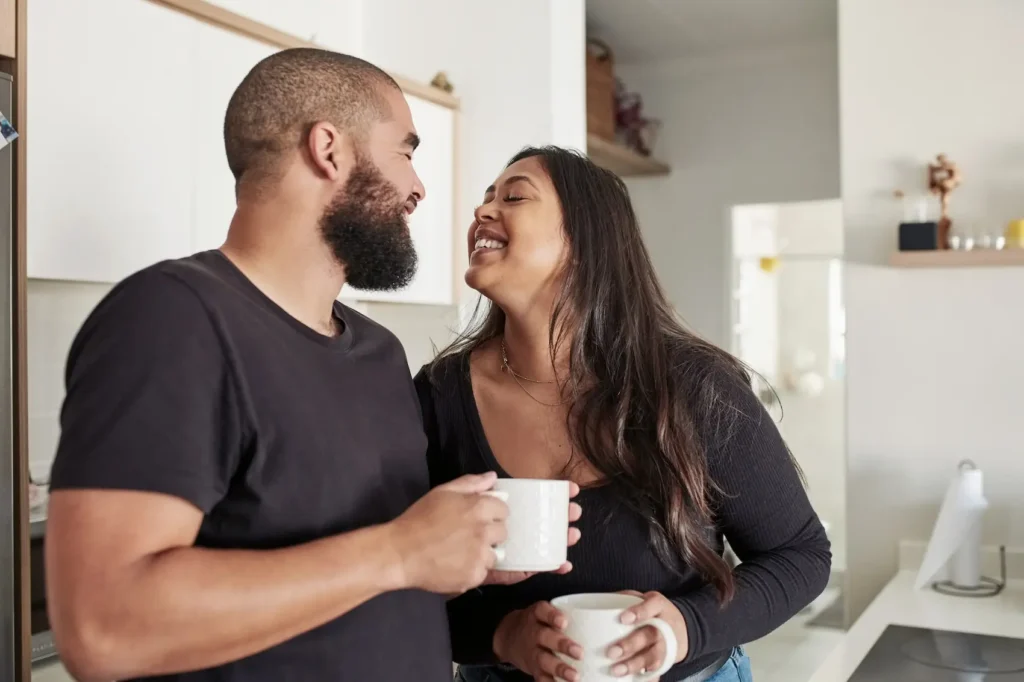Overcontrol, defined as excessive or maladaptive self control, can lead to significant problems in our relationships. People with overcontrolled traits may not realize their behaviors are contributing to relationship problems, or may not know how to make changes. Having the ability for high self-control isn’t bad; it can be a very good thing. People with high self control often care deeply about what happens. What is important is to look at the areas of your life where your overcontrol is causing problems, not to change everything about yourself.
Am I overcontrolled?
- Do you consider yourself to be perfectionistic or do others think this of you?
- Are you an all or nothing thinker?
- Do you often have ideas of how things should be/how people should behave?
- Have you received feedback that you are too hard on yourself or others?
- Do you feel a sense of urgency that tasks and problems need to be taken care of quickly?
- Does it feel difficult to let your guard down?
- Do you get caught up in details?
- Do you overwork/overextend yourself and have trouble saying no?
- Do you have trouble with procrastination on important/big tasks?
This is not meant to be a diagnosis, however, these are some overcontrolled traits that can contribute to relationship issues. If you can relate, there may be some work you can do to improve your relationship.
How does overcontrol show up in relationships?
You might find that when your partner doesn’t meet your expectations, you feel anxious or
frustrated. You may be critical of the way your partner speaks, behaves or even loads the dishwasher. While you may feel like your expectations are reasonable, your partner communicates that they feel stressed and criticized. Here are two examples of how overcontrolling behaviors impact relationships.
A story of resentment:
Joe puts a glass in the dishwasher and notices his partner’s dishes in the sink. He feels frustrated. He sits on the couch with his partner and asks, ‘have you loaded the dishwasher?’ His partner replies no. Joe sighs, crosses his arms and goes quiet. Internally Joe is fuming, thinking how can they be so inconsiderate? I’m going to be left to take care of dishes again. They always load the dishwasher the wrong way anyway. I guess I just have to do it myself. He does the dishes and feels relief that they are done ‘the right way’, but inwardly feels resentful.
A story of an unwanted helper:
Jane watches her partner cook dinner. She turns the heat down on the stove, and her partner asks her to stop. Jane says ‘I’m just trying to help, the vegetables would have burned at that temperature!’ Jane continues to make comments about her partner’s cooking like ‘you need to add salt or the water will never boil’ and ‘you’re supposed to cook the pasta whole, not break it in half! Jane’s partner feels shut down and criticized. They eventually both say ‘fine, you do it’ and leave the kitchen. Jane feels angry, confused and resentful.
How to manage your overcontrolling behaviors
Get out of fight or flight mode to feel safe and connect
- Take deep breaths, closed mouth smile, and move your eyebrows up and down.
- Do a mindfulness exercise.
- Put ice under your eyes for 30-60 seconds.
Practice direct, non critical communication
- Describe your feelings using emotion words, and don’t describe your partner.
- Ask for positive needs to be met versus describing what you don’t like.
- Listen to understand when your partner shares how they feel.
- Practice validating without agreeing or disagreeing.
Ask for help and accept that your partner’s way may be different from your way.
- There are many ways to cook a potato.
Ask yourself
- Do I expect my partner to think/behave the same way as me?
- Does my way feel like the only/right way to behave or act?
- What makes me think my way is the right way?
Out yourself to your partner
- Take responsibility for your overcontrolling thoughts/actions by telling your partner you recognize the behaviors AND by committing to learning and using skills to reduce them.
Identify your valued goal in the interaction you are in
- In this situation, is the way the dishwasher is loaded more important, or is showing my partner I respect and like them more important?
Now that you know how overcontrolling behaviors impact relationships, you can assess whether they are impacting your life and your relationships. If so RODBT may be an effective treatment for you. Use this as an opportunity to talk to your partner and build a deeper connection. Dr. John Gottman has several tools that to start the dialogue with your partner and develop a better understanding of one another.










